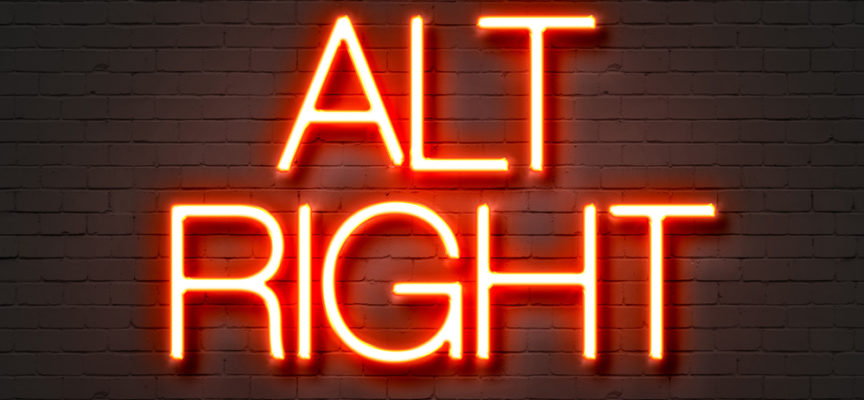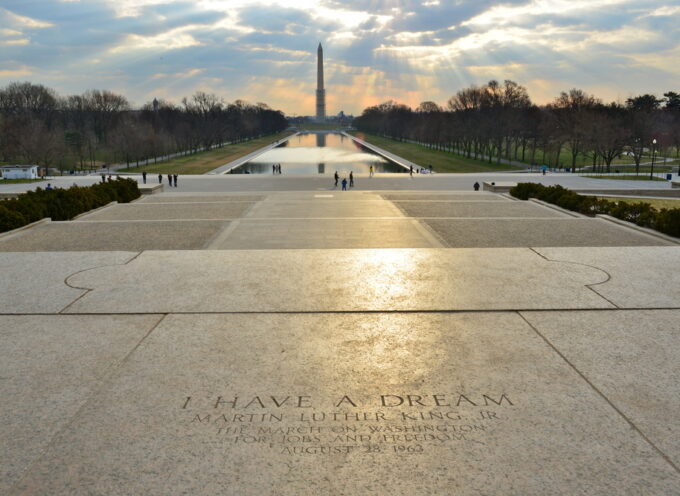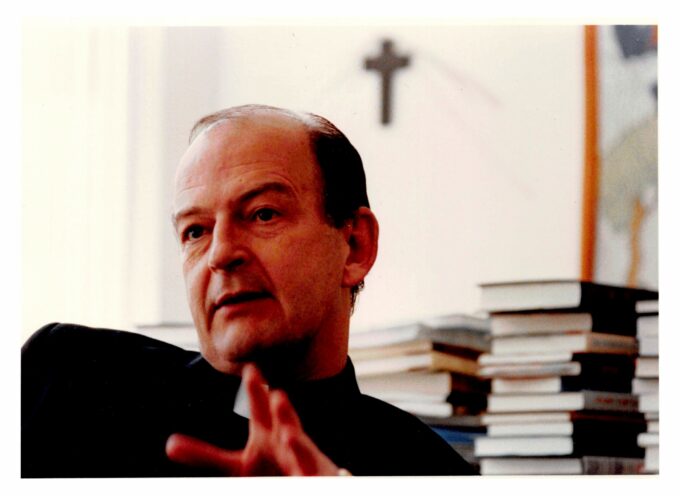On Wednesday, June 14, the messengers of the 2017 Southern Baptist Convention condemned “the anti-gospel of alt-right white supremacy.” The resolution passed by an overwhelming majority of approximately 5,000 votes in favor to no more than 10 votes against.
In light of the SBC’s condemnation and of the alt-right’s emergence on the national scene during the 2016 election cycle, I will be releasing a four-part series on the anti-gospel of the Alt-Right, summarizing its ideology, leadership, and involvement in the 2016 election cycle, before going on to address how Christians should respond to the Alt-Right’s false gospel.
The Emergence of the Term “Alt-Right”
The term “alt-right”—short-hand for “alternative right”—was coined by Jewish paleoconservative Paul Gottfried in the title of an address he delivered to the H. L. Mencken Club (and later published in Taki’s Magazine) in 2008. From 2008 onward, the term has been used to refer to a type of white identity politics that believes in racialism (the need to divide humanity into racial groups) and rejects American conservatism for being a “cuckold movement” (a cuckold is a man whose wife sleeps with other men; likewise, in the alt-right telling of the story, white conservatives are wrongfully “in bed with” other races, not only sexually, but socially, culturally, and politically).
The Many Streams of the Alt-Right
Like most political movements, the alt-right movement houses a number of different sub-groups who differ from one another in many ways, but who coalesce around their shared commitment to white identity. Included under the umbrella of white identity are groups that identify as:
- White supremacists and Neo-Fascists (groups such as the neo-Nazis and KKK who consider whites superior to other ethnic groups, and who usually wish for the federal government to save whites from the influence and/or rule of other ethnic groups)
- White nationalists (groups who advocate for separate homelands for the different ethnic groups, but do not insist that whites are superior to other ethnic groups)
- Anti-globalists (focus on white identity especially in relation to immigration and the globalized economy)
- Religious Racialists (groups such as the Kinists who draw upon religious sources to argue the social order should be defined primarily by race and blood rather than by borders or political ideas.)
- Neo-Pagans (pagan and often polytheistic groups such as the Heathenry, many of who tie their religion to the Germanic race and have racist and white supremacist convictions)
- Ethno-anarchists (groups who want to burn it all down and start over, but who also will settle for some serious trolling)
- Internet Trolls (loosely defined persons and groups who focus on white identity and who “troll” the internet seeking to start arguments and upset or humiliate people by posting accusatory, inflammatory, or off-topic messages in online comment chains or chatrooms)
Each of these groups has various distinguishing characteristics and priorities, and each group’s members have varying degrees of loyalty. Yet they share a determination to prioritize racial identity as the ultimate source of identity and, as such, something that must be guarded and conserved.
White Identity as the Core of Alt-Right Ideology
The common core of the alt-right is white identity. Like other forms of identity politics, it emphasizes the fact that people belong to specific races and tribes, and that these races and tribes have shared cultures that members of the race must preserve and defend. White identity proponents are especially concerned to oppose interracial adoption, interracial marriage, and non-European immigrants.
Many proponents of white identity are also white nationalists who seek the perpetuation of the “white race” through the maintenance of white nations and nation-states. Usually, they allow for members of other ethnic groups to live among them but only if those persons exist under a secondary status.
Many proponents of white identity and white nationalism are also proponents of white supremacy. White supremacists believe that whites are superior to members of other ethnic groups and that white civilization is superior to other civilizations. Alt-right leader Jared Taylor, for example, writes, “Blacks and whites are different. When blacks are left entirely to their own devices, Western civilization—any kind of civilization—disappears.”
Based on this common core of white identity, some alt-right leaders wish to rewrite the American Constitution to make the United States an ethno-state. Richard Spencer, the most prominent leader in the alt-right movement, writes, “Our dream is a new society, an ethno-state that would be a gathering point for all Europeans. It would be a new society based on very different ideals than, say, the Declaration of Independence.”
The False Gospel of the Alt-Right
The alt-right possesses an idolatrous ideology. Their narrative of the world locates a person’s identity in relation to his or her ethnic group. It locates evil in heteronomous influence or rule (being influenced or ruled by a person external to oneself or one’s identity group). It identifies as saviors those leaders who can liberate them from being influenced by or ruled by other ethnic groups and cultures, and desires a future in which clear lines of demarcation exist between ethnic groups.
By way of contrast, the biblical narrative of the world locates a person’s identity in relationship to the Triune God. It identifies as evil any attempt to absolutize some aspect of God’s created order (such as sex or money or power or…ethnic heritage); any situation in which we trust, love, obey, or fear any aspect of God’s creation (such as sex or money or power or…ethnic heritage) more than we trust, love, obey, or fear God himself. It identifies Jesus Christ as the Savior (Acts 4:12) who will one day return to install a new political order in which all worshipers from every ethnic heritage will gather together in unison around his throne (Rev. 5:9)
[Note: The current post is the first installment in a four-part series on the anti-gospel of the alt-right, including a summary of the alt-right’s ideology, a profile of its prominent leaders, a response to FAQs, and a gospel-centered evaluation of it as an ideology and a movement.]
Subscribe
Never miss a post! Have all new posts delivered straight to your inbox.







